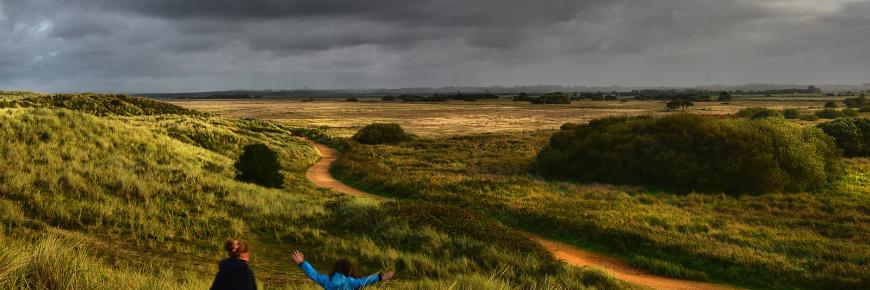Project Overview
The ENDURE project is organised into three strands each answering a challenge facing coastal managers and communities.
1 New Solutions for dune resilience
Three new solutions have been trialled on the ground at seven dune sites facing issues such as erosion and flooding across the project area. There was enough information available about these sites for progress to be measured and compared to the situation prior to the start of the pilots. Each solution employed was , innovative and never attempted on dunes before.
Methods were well-considered, and underpinned by scientific, cutting-edge research. We delivered appropriate, achievable and sustainable coastal management tools for stakeholders such as managers, land owners, government agencies, local and regional authorities, promoting wider application of these solutions.
2 Building tools to increase stakeholder capacity
ENDURE has jointly developed 3 new tools to improve knowledge, experience and confidence :
1. Mapping tool to visualise and compare impacts of different dune interventions on resilience, and supporting stakeholders to try new tools.
2. Early warning of dune status - dune health tool check to identify resilient and vulnerable dunes
3. Infrastructure (buildings) assessment tool – research on how the presence of buildings in the coastal zone impacts dunes (positive or negative)
3 Raising awareness of coastal communities and stakeholders
To fully realise the potential of new solutions and to achieve the best possible results for ENDURE, education and training to support the above two strands of the project was essential.
This strand of the project launched 2 education campaigns specifically targeting 2 Seas stakeholders important to successful improvements in dune resilience. These consisted of coastal managers, decision-makers including leadership, management teams and staff. In addition, EU coastal communities (with an overall population of 5 million) are important stakeholders in this context, as they have the most to lose if dunes fail to adapt to climate change effects. These members of the public are also involved in the development of a more effective coastal policy against the effects of climate change.
The ENDURE project has aimed to fulfil the following main objectives:
- Increase capacity of 2 Seas region stakeholders to implement approaches, moving away from reliance on .
- Improving the natural ability of 2 Seas coastal dune systems to act as adaptive, living sea defences with greater resilience to climate change impacts such as coastal flooding, erosion and sea level rise.
Ecosystem-based
Ecosystem-based coastal management is another term for nature-based or soft solutions to flooding and erosion.
Cost-effective
Cost-effective: this means the methods were productive in relation to their cost. In other words, they presented good value
Stakeholder
Stakeholder(s): this term refers to any party (be it an organisation, company, government) who has something to benefit from the project.
Nature-based coastal management
Nature-based coastal management refers to policies that employ the natural qualities of landscapes and ecosystems within measures against flooding and erosion. As such measures require less human intervention in landscapes, they are also called ‘soft’ solutions.
Hard engineering interventions
‘Hard’ engineering interventions rely on man-made structures such as concrete seawalls as the primary policy against flooding.

